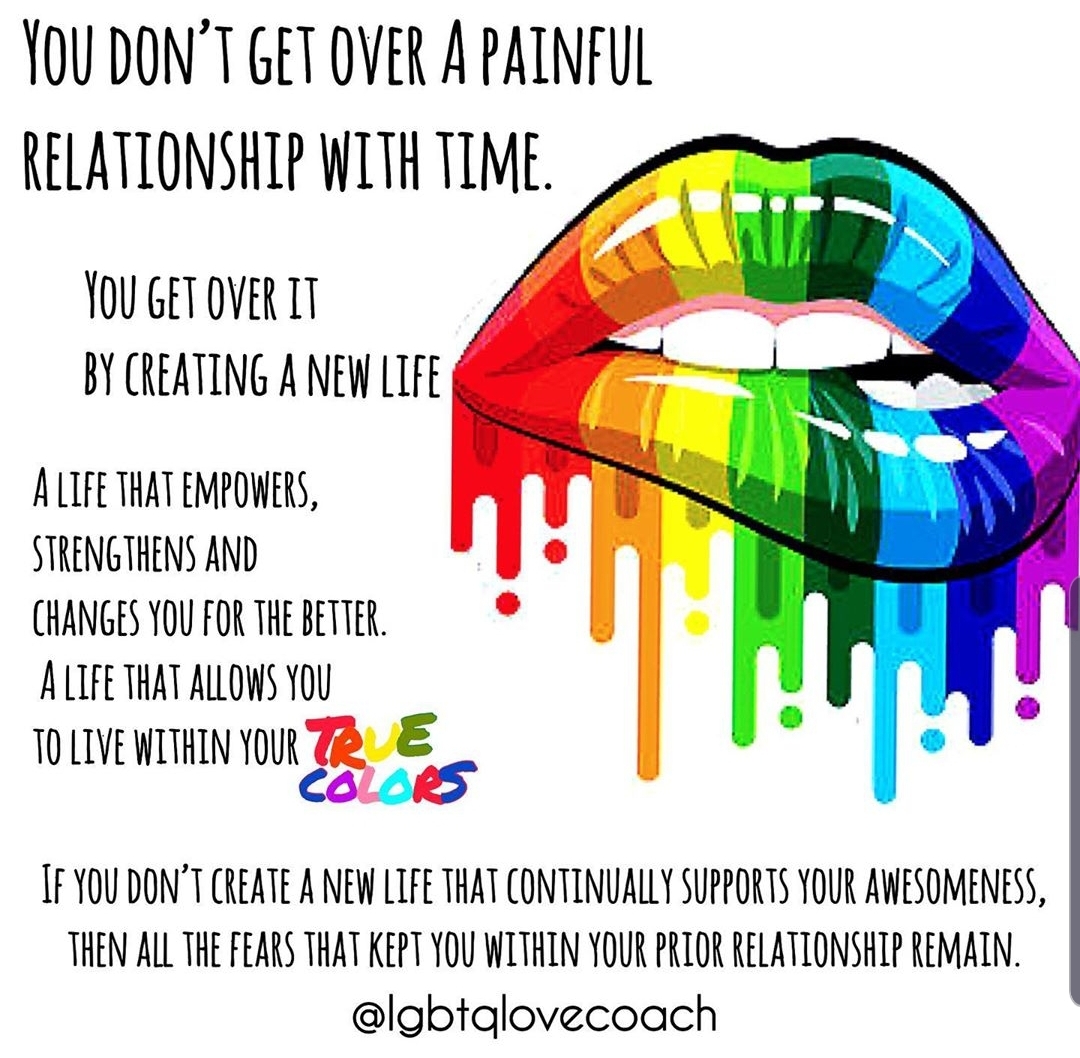
“How do I stop obsessing about my ex?” is a question I hear often as an LGBTQ+ Therapist and Dating, Relationship and Break-up Coach.
Our loved ones may tout “distraction” as being the most powerful thought silencer. Distraction helps but true healing from a painful breakup or toxic relationship depends on the distraction.
“Throw yourself into your work,” “hit the gym hard” and “dive back in the dating pool” are popular suggestions. We learn quickly though that even while with co-workers, pounding the pedals of an elliptical machine or swiping right towards new hope, we can’t stop thinking about our ex.

Or talking about them.
We share our rage, regrets and hopes with anyone who will listen. If we’re lucky, at least one of those listeners will refrain from minimizing our experiences, shaming us or giving advice. This wise individual knows that we will eventually figure it out and what we are in most need of following a breakup is compassion, empathy & validation of one’s feelings and experiences.
Thinking & talking about the ex keeps the wound open. We suffer longer.
‘Thinking & talking about
the ex keeps the wound open.
We suffer longer.”
Kim Kabar, LMFT
LGBTQ+ Love and Life Coach
The desire for relief from the pain of that open wound also increases our vulnerability to seeking “quick fixes.” We may seek temporary relief in the arms of a new lover or, maybe, two, three or countless lovers. We all react differently to pain. We may eat, smoke, drink & shop more. Or we may return to the ex, not for love but for relief from the obsessive thinking & from the pain of that open wound. So, how does one stop obsessively thinking about a failed relationship?

We get out of our heads. We become that attentive, wise & validating listener to someone else who is suffering.
If you are struggling with obsessive thoughts, I encourage you to do the following exercise every day for the next week:
Each time you find yourself obsessively thinking about your past relationship, call someone who is currently struggling. Call as many people each day as necessary. Don’t give advice, unless it is requested. This is an exercise in restraint as much as it is an exercise to get out of your head.
Most importantly, YOU CAN NOT TALK ABOUT YOUR EX or any of your current struggles. This exercise only works when we restrain ourselves from talking about our problems during these phone conversation. Write “zip it” on a Post-It and stick it to the back of your phone as a reminder, if needed. Keep your focus on the other person.
Helping others when we are also hurting, is how we heal from our broken hearts. It’s how we get unstuck from the grief and fears that are the fuel of our monkey mind’s chatter.
Your gift to them is to create a safe space for him/her/they to “figure it out.” After all, don’t we all eventually figure it out? To be heard without judgement and to have our feelings validated is the greatest of gifts one can give to another caught in the grip of despair. Give to others what you desire they give to you.
“Give to others what you desire
they give to you.”
By turning our attention to the needs of others during bouts of obsessive thinking, we allow the neurological fear receptors within our brains to recede. As our fear decreases, our cognitive functioning skills (such as reasoning and logic) are flipped back on.

Within our heightened state of stressful emotions, certain brain functions stop or slow to allow for other parts of our brains to deal with the internal chaos created by our obsessive thinking. The reasoning functions within our frontal cortex, for instance, decrease to allow for an increase in functions of the amygdala, considered the oldest part of our 500,000-year-old human brain (the frontal cortex only started its development about 3 million years ago.) The amygdala is responsible for our “fight-or-flight” survival response.
“Within our heightened state of stressful emotions, certain brain functions stop or slow to allow for other parts of our brains to deal with the internal chaos created by our obsessive thinking. “
Kim Kabar, LMFT
LGBTQ+ Love & Life Coach
The reasoning functions within our frontal cortex, for instance, decrease to allow for an increase in functions of the amygdala, considered the oldest part of our 500,000-year-old human brain (the frontal cortex only started its development about 3 million years ago.) The amygdala is responsible for our “fight-or-flight” survival response.

The almond-shaped amygdala attaches emotional significance to events and memories. It came to the attention of emotion researchers in 1939 when monkeys whose amygdalae were removed showed bizarre patterns of behaviour. They became fearless, hypersexual and either devoid of emotion or irrationally aggressive.
Ruminating about how our ex did us wrong, how we should have known better and how we probably won’t survive our imagined dreary futures causes a rush of certain brain chemicals to flood into the amygdala. The amygdala also doesn’t know the difference between pain felt during an actual event and the pain we feel as a result of the countless fatalistic scenarios we create during bouts of obsessive thinking. It only knows that its job is to propel us to either fight harder to be fix the problem so the pain goes away or to flee, often with quick fixes, in an attempt to escape the pain,
This exercise in mindfulness, restraint and kindness gets us out of our heads. It grounds us and it stops the obsessive thinking.
If you are struggling in in life or in love, call me for a free consultation and let’s see how I may help you. The hardest step is the first. You are ready to take that first step without hesitation.

Recent Comments